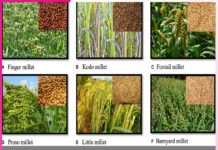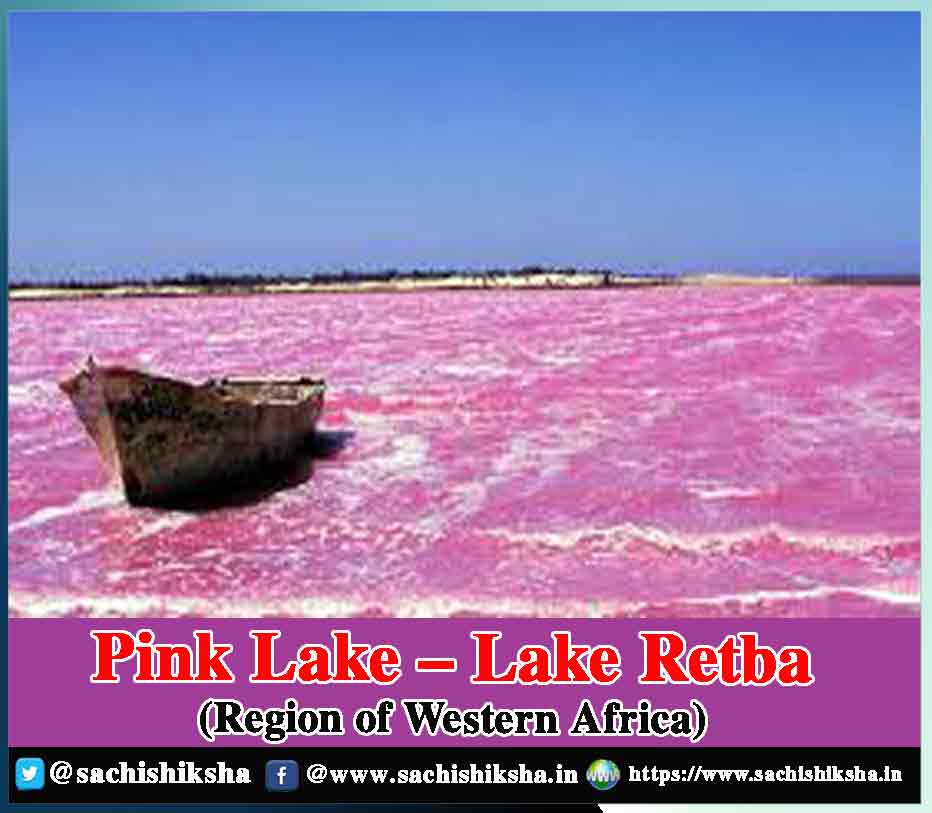Pink Lake – Lake Retba (Region of Western Africa)
Pink Lakes! No, we aren’t visiting some magical land. They are also not lakes from the landscapes of Disney or a fairy land where the lake is transformed pink with rose petals laid down on its bed or flamingoes living inside them or the fairy of the land turning it into a strawberry milk shake.
The fascinating fact is that Pink Lakes do exist and they are not just a creation by some magical character but one of the many natural wonders that exists in different parts of our planet. There are 29 pink lakes that have been discovered around the world till now.





Apart from countries like Canada, Spain, Australia and Azerbaijan that the are beneficiaries of Nature’s gifts, Senegal is the only African Country that got its fair share. Indeed Lake Retba, nature’s stunning pink gift to Senegal, has been a popular tourist delight over the years.
Meet Lake Retba. While it may look like a strawberry milkshake, it’s actually a natural body water. Situated north of Cap Vert peninsula of Senegal and separated from the Atlantic Ocean by some mere golden dunes, lies the fascinating Lake Retba – the pink lake or Lac Rose (as it is called locally). With the depth of 3 meters and covering an area of about three kilometers square across the Cap Vert peninsula, it is a Salt Lake with salt content going to about 40% of its composition at times.
Related Article: All You Want to Know About Damdama Lake
So, how does the water of the lake get a pinkish hue? No, it is not by some chemical reaction. The reason for the unique pink colour of the water is, in fact, an algae called Dunaliella Salina, which gets attracted to the lake because of its high salinity. The algae was named after Michel Felix Dunal who first recognized that the red colour of certain salt lakes in France was due to an organism. Dunaliella Salina has the ability to produce enormous amounts of beta-carotene that is why the single-celled organism is able to survive.
This is the same pigments that give carrot, which contain 0.3% of beta-carotene, their colour. Concentration as high as 14% of the dry weight can occur in Dunaliella Salina, which is the highest in any organism. The beta-carotene helps the algae to protect itself against the intense sunlight that is reflected off the salt, and also gives it the dark pink hue. During summer, the saline level of the waters is very high. Due to this, not only does the water turn strawberry pink, it also becomes bloody red some times.
Having understood the reason behind the pinkish hue of the lake and knowing about the bacteria causing it, one may wonder whether the lake is safe to swim. The Dunaliella Salina bacteria which gives the lake its distinct colour is completely harmless to humans and swimming in the lake is possible. There are even a few species of fish that survive in the saline water due to their ability to pump out extra salt, keeping their water levels balanced.
The fish are approximately four times smaller than those living in a normal environment, as a result of salt water fish are dwarf. Lake Retba is a definite must visit for people who wish to take a wellness or healing vacation. With its salt and mineral deposits, visitors can float on the lake’s surface. During windy weather and during the short wet season from July to October, the lake’s colour is not strikingly pink due to the rain, which dilutes the salinity. The best time to visit the lake is during the dry season, which lasts from November to June.
Much like other pink lakes, Lake Retba is separated from the ocean by a few hundred meters. At one point, Retba was connected to the ocean but over time was cut off by encroaching sands. By being cut off from the ocean’s water supply, Retba’s water would evaporate faster than it could be replenished, causing the salinity of the lake to increase over time. Today the lake has approximately the same salinity as the Dead Sea. It is also often referred to as Senegal’s Dead Sea.
Nestled between white sand dunes and the Atlantic Ocean, this unique body of water was once the finishing point of the off-road car race, the Dakar rally. The fuchsia lake has been a candidate for UNESCO World Heritage status since 2005 and is fast becoming one of Senegal’s tourist destinations. Apart from the tourist attraction Lake Retba is also known for the salt harvesting. Men used to fish in the lake but by the 1970’s in response to ongoing droughts and economic hardships, locals began to collect and sell salt to supplement their family income.
Salt collectors enter the lake after rubbing Shea butter all over their body to protect themselves from the harsh salinity of the water which would otherwise damage and cut their skin. The salt collectors spend 7 to 12 hours a day in the lake waters. Once they paddle their boat to the chosen area they use a long stick to push against the bottom of the lake. The boat they use is called a pirogue and is made of wood – any engine or metal fixture would immediately start to rust.
When the stick they use touches the salt they can feel it. Waist-deep in water, the men scrape the bottom of the lake to harvest the universally useful mineral, which they collect in baskets in their wooden canoes. It is mainly men who work as harvesters, filling their baskets with salt before heaving it over their heads into their boats.
Once the boats are filled with the required amount of salt it is taken to shores where the women carry the salt from the boat to the land. There are two different types of salt – the first is called medium salt. This type is bought by those who are in fish preservation or working in the leather industry. The big salt is the second type which is used in Senegal in food. The big salt is also used in Europe to melt ice on the roads. It is estimated that around 1000 people work around Lac Rose on a daily basis, harvesting 24,000 tons of salt each year. Over 70% of this is exported around West Africa, especially to Cote d’Ivoire (Ivory Coast).
Mother Nature never ceases to amaze us with treasures of beauty like the captivating Lake Retba in the land of Western Africa. For those living around Senegal, the Lake is not only a gift to the eyes but also to life. Such are the magnificent manifestations of Mother Nature – rare and priceless like Lake Retba.















































